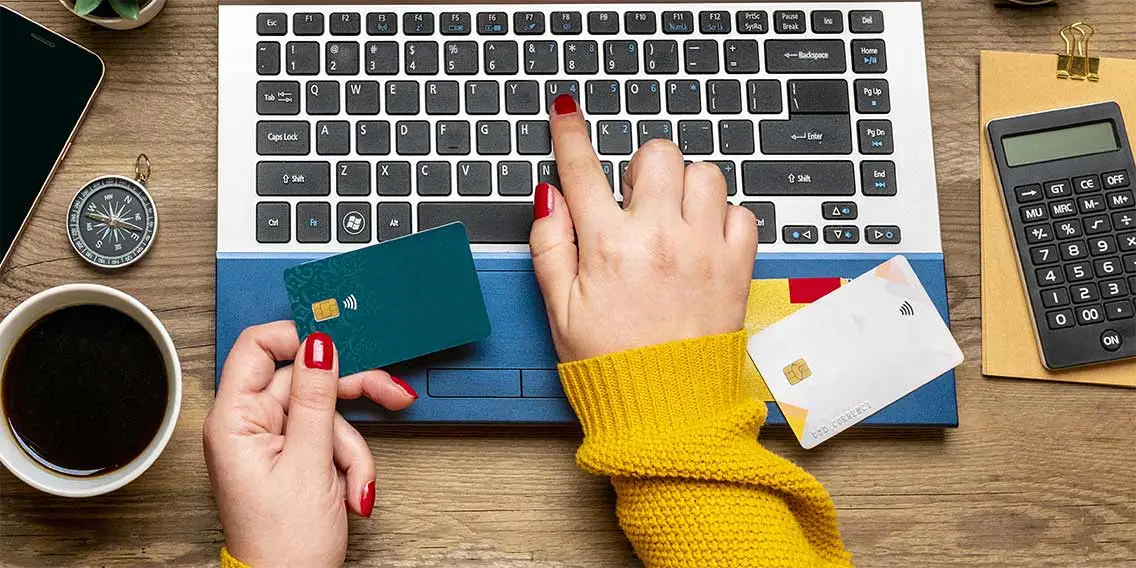CREDIT CARDS
How to Use a Credit Card to Build Credit
EXPECTED READ TIME: 4 MINUTES
Whether you're starting with no credit history or trying to rebuild your score, it might be a challenge to qualify for a credit card. If you do get one, you'll need to make sure that your financial behavior helps to raise your score, not damage it. However, understanding how to use a credit card to build credit involves some fairly simple steps.
Best Types of Credit Cards for Building Credit
The best types of credit cards for building credit are ones you can easily qualify for. Here are a few options:
Student Credit Card
This type of credit card is a great fit for students. Plenty of banks offer them specifically to help students build their credit. While some do charge an annual fee, you may be able to find ones that don't. Some student cards even offer rewards on purchases.
Secured Credit Card
A secured credit card is one where you'll need to make a refundable security deposit that typically acts as your credit limit. For instance, if you put down $500, your credit limit will be $500. These cards are seen as a first step to build or rebuild your credit since they're easier to qualify for. Some do charge high fees, though if you're a responsible cardholder, many credit card issuers will allow you to upgrade to a better credit card within 12 months.
Store Credit Card
Many major retailers offer their own credit cards to encourage repeat customers. Some store cards can be used at the store where you signed up and at a family of other retailers owned by the same corporation. Other cards can only be used at the store you see printed on the card. Store cards usually have relatively low credit limits.
Someone Else's Credit Card
Another option is to become an authorized user on someone else's credit card. Consider asking a trusted friend or family member who is responsible with their credit card for help. While you do get your own card to make purchases, you're not the main account holder, meaning you don't carry as much liability. Being an authorized user means the primary cardholder's credit history may end up being part of yours — at least the part involving the credit card in question — so make sure you use your card responsibly.
Steps to Building Credit With a Credit Card
Once you've been approved for a credit card, you'll need to make sure your financial behavior builds up your credit score. No matter which credit card you have, here are some things you can do to raise your score.
Make On-Time Payments
Your payment history makes up more than a third of your FICO credit score. Missing even one payment will have a major impact on your score. Think about it: your credit score is a reflection of how responsible you are when it comes to borrowing money. Making late payments is a sign that you may not be a responsible borrower, therefore this behavior will lower your score.
Use Your Credit Card Like a Debit Card
To ensure you can afford to make on-time payments, don't make purchases that are more than you can reasonably afford. To help get into the mindset of budgeting better, think of your credit card as a debit card. That's because there's only so much in your bank account — once you spend it, it's gone. By treating your credit card as a debit card, you'll hopefully be less tempted to overspend. To do this, use the balance in your checking account as your "credit limit" instead of the actual limit associated with your credit card.
Keep Your Credit Utilization Low
Although you can technically spend up to your credit limit, you want to keep your balance as low as possible. Credit card issuers look at your credit utilization, which is the percentage of what you owe compared to your credit limit. It's the second most important factor in determining your credit score at 30%. Ideally, you want to keep your credit utilization at 30% or below. Any higher and lenders may believe you've overextended yourself financially.
Consider Paying Off Your Entire Balance Each Month
Paying off the entire balance each month can build your credit because it proves you can make on-time payments. Plus, you also won't have to pay interest, saving you money. An easy way to ensure you can pay off your card each month is to make small purchases like your monthly streaming subscription and setting up automatic payments, so you don't miss any.
Monitor Your Accounts
Monitoring your credit card account will help you spot any fraudulent transactions while watching the balance inch up toward your limit can help you avoid high credit utilization, keeping your budget on track and your credit score higher. Keeping a close eye on your credit score at the same time can help you see in real time how your credit card activity affects your score. Watching your score jump a few points after paying off your credit card balance can be extremely motivating, if not just reassuring.
The Takeaway
Whether you're just starting out with credit or rebuilding your finances after a financial hardship, the best thing about credit is that you can do something about it. With these tips and the right credit card behaviors, you'll be on track to summit the score of your dreams in no time.
Explore Credit Card Options and Strategies Through PenFed
Discover the diverse offering of products, services, and support available to our members.




